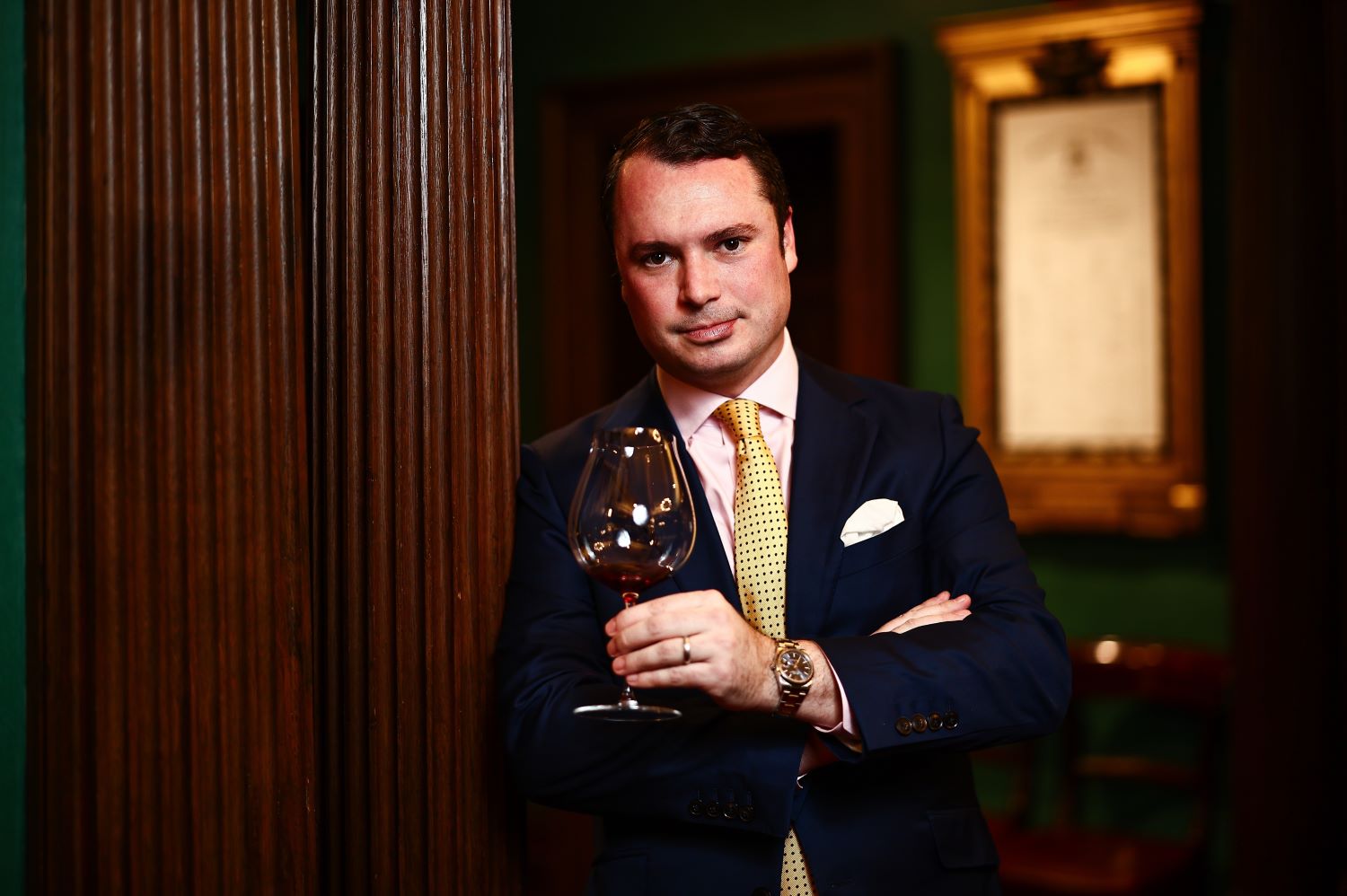Above: Alex Turnbull, Head of Private and Online Sales at Jeroboams
For the latest interview in our ‘Fresh pour’ series, we speak to Alex Turnbull, Head of Private and Online Sales at Jeroboams. Having fostered a passion for wine at the Edinburgh University Wine Society, Alex headed to London shortly after graduating. After almost seven years at Justerini & Brooks, and a WSET Diploma under his belt, he joined Jeroboams in 2021 as Private Sales Manager before starting his new role last year.
Alex shares his favourite wine list in London and considers what makes fine wine accessible.
Wine Lister: What was the bottle that got you into wine?
Alex Turnbull: 1970 Mouton Rothschild, served blind by a dear family friend in Versailles. You always remember your first First Growth (I still have the label, carefully kept).
WL: What is one misconception people have about the fine wine industry?
AT: That we were all born into it. That might have been true fifty years ago, but certainly isn’t the case today and the best people I know in the trade weren’t. I grew up in the tropics where we put ice in our whites and chill our reds.
WL: A producer that you admire and why?
AT: Joséphine Duffau-Lagarrosse at Chateau Beauséjour. The journey she has been through to reclaim her family domaine is inspiring, and the first few vintages under her complete control show tremendous promise.
WL: The fine wine trends you are most and least excited about?
AT: Sustainable viticulture I’m excited for. Eco-friendly packaging, water conservation, CO2 capturing, there’s a lot going on. It now needs to cascade through the supply chain, right to the end consumer. Least excited would be ‘no and low’. German Riesling is my fix for low alcohol and there are so many other exciting non-alcoholic drinks out there. Non-alcoholic wine isn’t one of them.
WL: Your favourite wine list in London?
AT: Currently, Cornus. Melania Battiston (Cournus’s Wine Director) has curated an exceptional list, with loads of bargains. There are wines from producers on there that usually get squirrelled away on release and never see the light of day.
WL: What do you think young people can bring to the industry?
AT: Their creativity. Whether that’s making wine that young people want to drink, or revolutionising businesses, the younger generation will be far more innovative than I will ever be. Young people can bring so much to the table, including embracing technology and promoting diversity, and they should be welcomed to it.
WL: Have you noticed any purchasing habits or stylistic preferences among the younger consumer group (ages 21-35)?
AT: Great labels, purer and more fruit-driven wines, and ones with a story and good people behind them.
WL: How can fine wine producers appeal to the younger generation?
AT: Making their wines more accessible (both stylistically and in their marketing) and teaching the younger generation how to appreciate them. Younger people aren’t buying bottles to lay for 20 years and most of them haven’t tried aged Bordeaux, so wineries who don’t want their wines opened young need to educate on the merits of stashing bottles away. The best way to do that is by pulling corks.
WL: The theme song to your career so far?
AT: Born to Run by Bruce Springsteen.
WL: If you weren't working in wine, what would you be doing?
AT: I always thought I would go into international development, working with people who needed my help. I still like to think that I help people, but it’s a different kind of help I provide.
